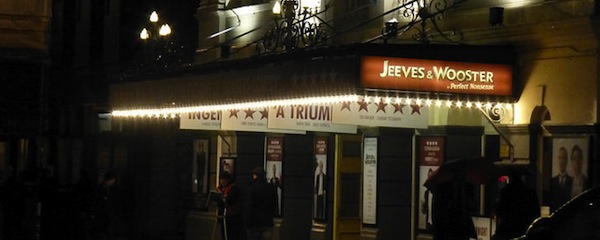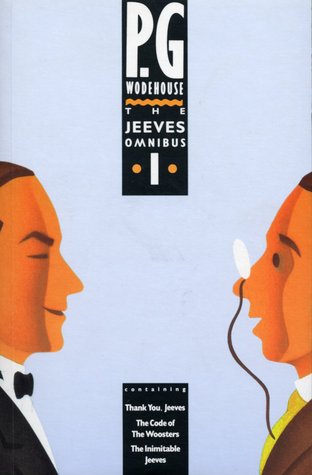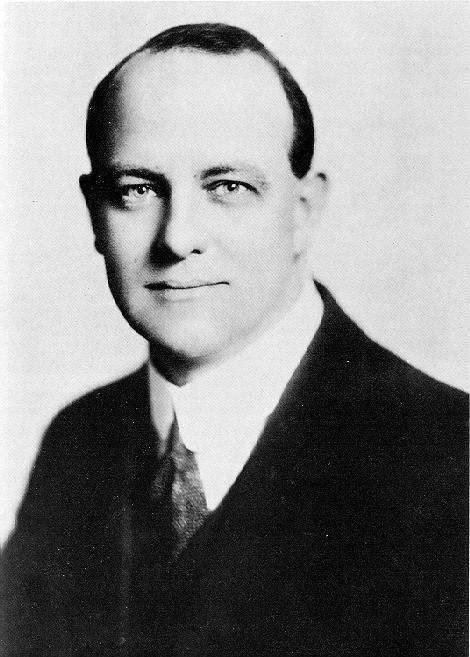
photo © GivingNot, 2014
by Margaret Sessa-Hawkins
‘She sprang it on me before breakfast. There, in seven words, you have a complete character sketch of my Aunt Agatha.’ It was with these two inconspicuous lines that P.G. Wodehouse first introduced the world to Bertram (Bertie) Wooster – an early 1900s upper class fop – and Reginald Jeeves, his brilliant personal manservant.
These first two sentences were the beginning of almost fifty years of work for Wodehouse. Over the course of his life, the Jeeves and Wooster narrative encompassed thirty-five short stories and eleven novels. Posthumously, they gave life to three films, two musical adaptations, and one spectacular televisions series.
 But what is so incredible about these stories? Looking at them from the present day, it is what shines through in those first two sentences: the lighthearted tone, the sheer joviality of the writing. Look through any modern short story collection, peruse a serious literary magazine, and you would be hard-pressed to find such comedy.
But what is so incredible about these stories? Looking at them from the present day, it is what shines through in those first two sentences: the lighthearted tone, the sheer joviality of the writing. Look through any modern short story collection, peruse a serious literary magazine, and you would be hard-pressed to find such comedy.
Wodehouse was one of those rare, brilliant authors who injects amusement into every aspect of a narrative – voice, plot, characters, setting, era. The language is peppered with slang like ‘dashed’, ‘what ho!’, ‘pipped’ and ‘bally’. The plot lines follow the idle upper-class and their servants. Even the stories’ central problems are of an era. The biggest threat to Bertie, in most cases, is that he will accidentally become engaged to a girl and be unable to extricate himself.
“He has his code,” Bertie says to Jeeves, in ‘Jeeves and the Greasy Bird’, explaining why the modern gentleman is unable to reject a girl who decides she wants to marry him. “The code rules that he must kid her along and accept the situation.” The rules apply even when, as Bertie explains it, the gentleman, “would rather be dead in a ditch.”
Given this, one might expect the stories to be extremely dated. But, a century after the publication of that very first short story, the series remains popular. There are simply too many universally appealing aspects to the narratives for them to fade away.
A large part of this appeal comes, undoubtedly, from the stories’ humor. “You’re always pinching policemen’s helmets, aren’t you?” Aunt Dahlia asks Bertie, in ‘Jeeves Makes an Omelette’. “Not always,” Bertie replies. “Only as an occasional treat, as it might be on a Boat-Race Night”.
 There is also, undoubtedly, some enjoyment derived from the relative safety of the stories. Despite the fact that Wodehouse was writing the Jeeves and Wooster narratives during a period of time which saw both world wars, he made the conscious choice to leave Jeeves and Wooster frozen in the early 1900s. He set himself other strict parameters in the stories too: no one dies (unless it’s a rich and aged relative leaving someone money), there are no major political events (only small-town elections), and nothing big ever changes.
There is also, undoubtedly, some enjoyment derived from the relative safety of the stories. Despite the fact that Wodehouse was writing the Jeeves and Wooster narratives during a period of time which saw both world wars, he made the conscious choice to leave Jeeves and Wooster frozen in the early 1900s. He set himself other strict parameters in the stories too: no one dies (unless it’s a rich and aged relative leaving someone money), there are no major political events (only small-town elections), and nothing big ever changes.
It takes a level of cleverness rarely seen to create secondary characters with voices as strong, unique, and diametrically opposed, as Bertie and Jeeves’ – from Bingo Little, who falls in love every two seconds, to Aunt Dahlia, who spent her younger days hunting with the Quorn and Pytchley. It takes immaculate skill to craft a world as detailed and delightful as the idyllic 1930s England Jeeves and Bertie inhabit, a world filled with visits to country houses, and sleeping until noon, and nights out at clubs. And it takes something approaching brilliance to weave into these narratives social commentary as subtle as that present in the Jeeves and Wooster stories. For, even as we love Bertie, it’s hard not to notice that he, the good-natured but bumbling idiot, is living the high life of the non-working upper-class while the fiercely intelligent Jeeves is his servant.
It is a shame, in many ways, that stories like those in the Jeeves and Wooster series are so scarce nowadays. It means that we are, in some respects, missing something fundamental from the short story as an art form. We have to search that much harder now to find short stories with a certain level of humor and wit. And we have to search that much harder to find stories to read for the pure elation of falling into another, pleasanter world for a few brief minutes.
Given this, it is fortunate that the Jeeves and Wooster series seems in no danger of fading from popularity. Despite containing a time and attitude as perfectly crystalised as an insect in amber, the Jeeves and Wooster stories are, in so many ways, completely timeless.
~

